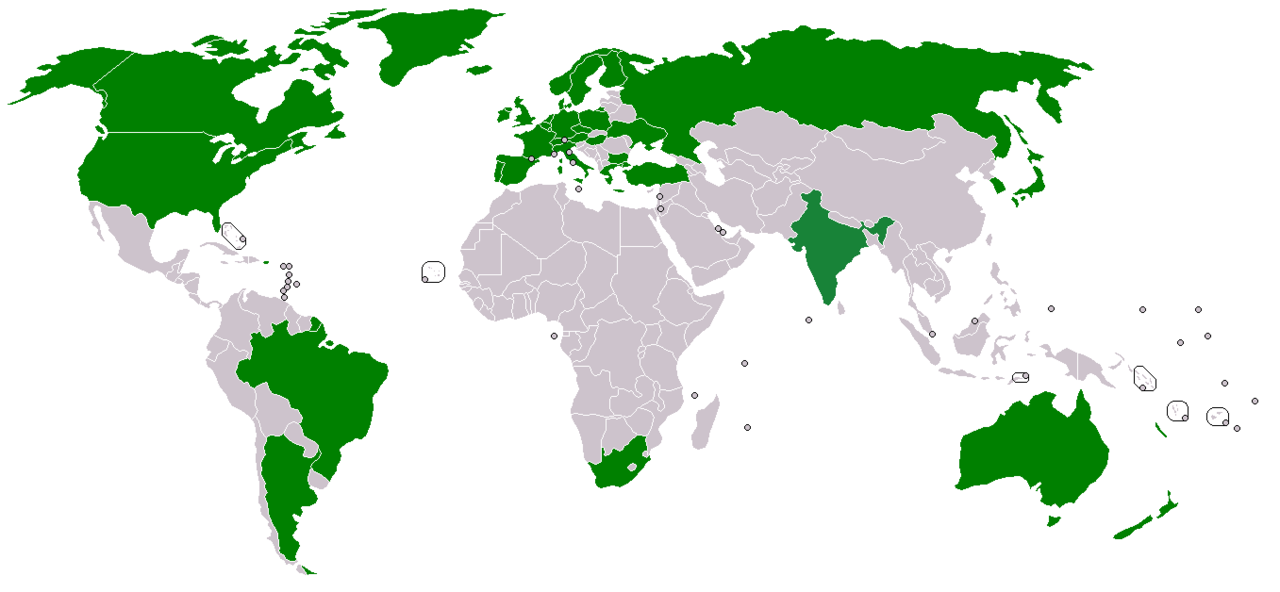India became 35th member of Missile Technology Control Regime
India has just become officially the 35th member nation of the Missile Technology Regime (MTCR), the development came after its bid to become the member of national supplies group (NSG) was opposed by China.
In a press statement the Indian Ministry of External Affairs announced on June 27 “the MTCR Point of Contact in Paris has conveyed the decision regarding India’s accession to the regime through the Embassy of France in New Delhi as well as the Embassies of The Netherlands and Luxembourg.”
The formal credentials were handed over to foreign Secretary S Jaishankar in his Delhi office, which reads, “India is now part of the elite missile technology control group becoming its 35th member country”.
India had been adhering the guidelines since 2008 and had put last year its application for the MTCR membership.
In a joint press statement by the regime members had said: “Recalling their shared commitment to preventing proliferation of weapons of mass destruction and their means of delivery, the leaders looked forward to India’s imminent entry into the Missile Technology Control Regime.”
Monitoring technology transfers
The regime is an informal, voluntary association of nations formed in 1987 by G7 countries (Canada, France, Germany, Great Britain, Italy, Japan, and the United States) aiming to check on the proliferation of missiles and unmanned aerial vehicle (UAVs) capable of carrying weapons of mass destruction (WMDs) and of delivering a payload of at least 500 kg to a range of at least 300 km.
Particularly, it monitors the transfer of missile and missile technology, which can enable other nations to develop such systems.
The guidelines of the regime do neither distinguish exports to member countries from those to MTCR non-partners, nor does it entitle member countries specially to obtain technology from other members.
However, India as a member can participate in the decision-making and this would be mutually beneficial in the maintenance of international non-proliferation objectives.
Scientists also believe it could boost India’s missile’s export prospects, – such as for the BrahMos missiles jointly manufactured with Russia -, and better its say on export controls policies.
http://mediaindia.eu/business-polit...-member-of-missile-technology-control-regime/
India has just become officially the 35th member nation of the Missile Technology Regime (MTCR), the development came after its bid to become the member of national supplies group (NSG) was opposed by China.
In a press statement the Indian Ministry of External Affairs announced on June 27 “the MTCR Point of Contact in Paris has conveyed the decision regarding India’s accession to the regime through the Embassy of France in New Delhi as well as the Embassies of The Netherlands and Luxembourg.”
The formal credentials were handed over to foreign Secretary S Jaishankar in his Delhi office, which reads, “India is now part of the elite missile technology control group becoming its 35th member country”.
India had been adhering the guidelines since 2008 and had put last year its application for the MTCR membership.
In a joint press statement by the regime members had said: “Recalling their shared commitment to preventing proliferation of weapons of mass destruction and their means of delivery, the leaders looked forward to India’s imminent entry into the Missile Technology Control Regime.”
Monitoring technology transfers
The regime is an informal, voluntary association of nations formed in 1987 by G7 countries (Canada, France, Germany, Great Britain, Italy, Japan, and the United States) aiming to check on the proliferation of missiles and unmanned aerial vehicle (UAVs) capable of carrying weapons of mass destruction (WMDs) and of delivering a payload of at least 500 kg to a range of at least 300 km.
Particularly, it monitors the transfer of missile and missile technology, which can enable other nations to develop such systems.
The guidelines of the regime do neither distinguish exports to member countries from those to MTCR non-partners, nor does it entitle member countries specially to obtain technology from other members.
However, India as a member can participate in the decision-making and this would be mutually beneficial in the maintenance of international non-proliferation objectives.
Scientists also believe it could boost India’s missile’s export prospects, – such as for the BrahMos missiles jointly manufactured with Russia -, and better its say on export controls policies.
http://mediaindia.eu/business-polit...-member-of-missile-technology-control-regime/


